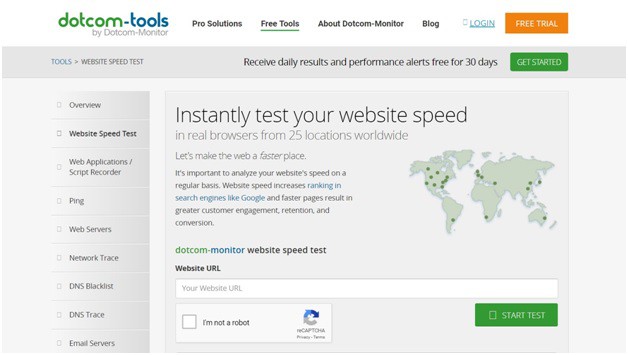
11 Sep 7 Tools To Test WordPress Performance and Site Speed
Speed is one of the main factors that can affect your website’s traffic. A site that takes less time to load will always be preferred by visitors and will be easier to rank higher in the search engine. In other words, it is not only useful for improving traffic but also your SEO quality.
To improve your site’s speed, you need to keep a close watch of your site’s performance. Fortunately, for those of you who have a WordPress-powered website, there are some great tools for such a task.
How My Website’s Speed Might Get Affected?
There are many factors that can affect the speed of a website – the quality of web hosting you use, the number of visual elements in your site, the number of plugins installed, etc. Other than that, optimizing your website speed can rarely be done overnight.
For more information about this, you may want to visit Hosting Wiki – you’ll find plenty of useful advice regarding both WordPress and anything else you might need for your web development journey.
7 Tools to Test My WordPress Site Performance and Speed
Here are some of the best tools you can use to monitor your WordPress website’s performance:
Table of Contents
Pingdom
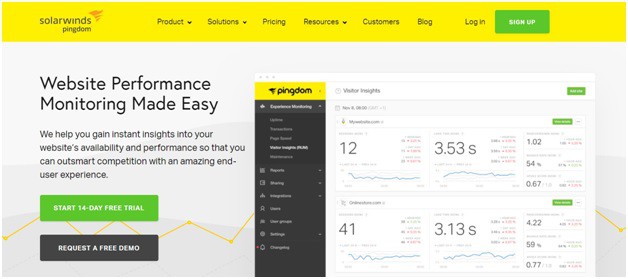
Pingdom is one of the best tools to monitor your website’s speed as this software features a 100-point grading system for a more convenient way to track your site’s performance.
Pingdom will check all parts of a web page, trace your website’s performance history and access speed from various locations in the world, and give you tips for improving the overall performance of your website.
You can directly see the test results – Pingdom will show you the total request number, information on how long it will take to load the website, and the size of each web page.
Moreover, the percentage of your website’s speed will also be compared with the global average score, so you can find whether your site is running at the optimum level.
GTMetrix
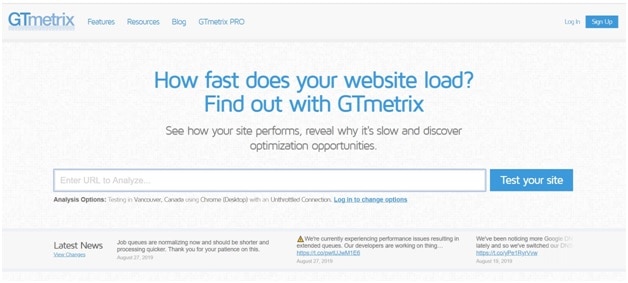
GTMetrix is one of the most famous and most used tools to check the speed of a website besides Pingdom.
This tool allows you to choose the location where you want to check the speed of your websites – you can run the test from Hong Kong, London, USA, Mumbai, etc.
Uniquely, they also allow you to change the connection speed, which means you can simulate different types of connection types to see how they affect your page loading time.
Moreover, GTMetrix also has the ability to stop the ongoing test, send cookies per your request, use HTTP authentication, and categorize a whitelisted and blacklisted URL.
Google PageSpeed Insights
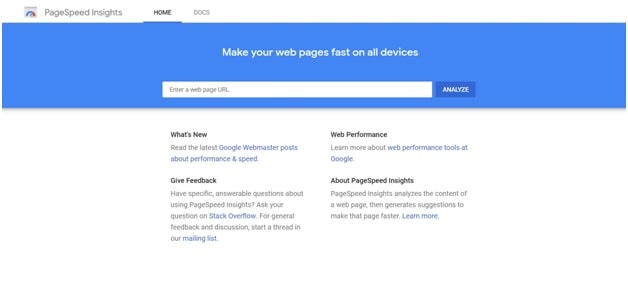
Google PageSpeed Insights is a simple and trust-worthy website speed identification tool. You only need to type your site’s address or any web page that you want to analyze and click a single button to start the analysis process.
You will receive a comprehensive report about what kind of files had to be loaded and what kind of issues were found that reduce the speed performance of the website when accessed either from a mobile device or desktop computer. It will also provide some suggestions for what can be improved to increase the loading speed of your website.
Monitis

Monitis is a website monitoring tool with tons of additional features. It can predict what kind of issues you might face in the future based on the current report. Monitis allows you to receive instant notifications either directly to your email, SMS, or Twitter, and give you a real-time, interactive chart of your site’s performance.
This tool also allows you to keep performance history for up to two years and perform automatic real-time monitoring. However, note that you need to pay to use all these features starting from $12 per month.
Webpagetest
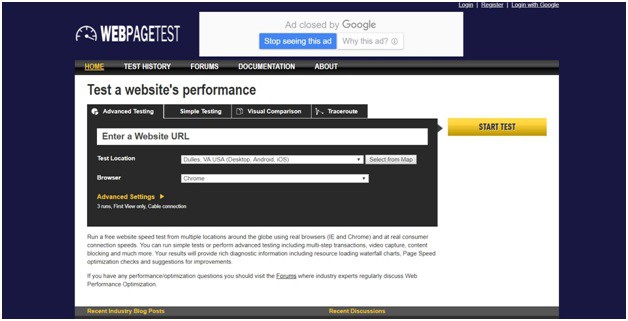
If you are looking for a reliable tool to conduct website performance and optimization tests, you should definitely check out Webpagetest. It provides you with a simple testing solution using connection speeds from real users.
You can also choose the browser you use to conduct the test. For now, it provides you with two browsers: Internet Explorer and Google Chrome.
Webpagetest provides you with detailed performance results – that includes loading times, start render time, and the overall number of requests made. This tool also provides you with a simple pie chart to help you find which element of your website slows down your website.
Uptrends
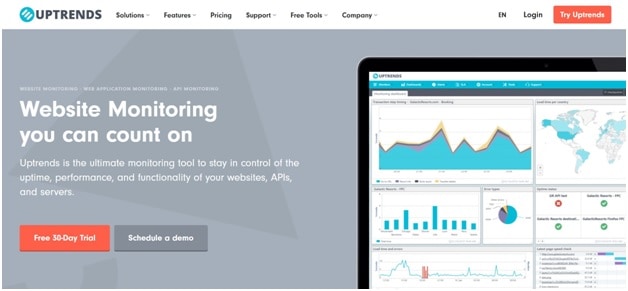
Uptrends is a professional website performance monitoring tool that will help you oversee the core aspects of your site, such as the uptime, speed, functionality, server performance, and API.
This platform also provides some free tools for website speed testing and monitoring. For example, the website speed test allows you to choose the location and a browser to conduct the test. It also gives you the option to choose bandwidth throttling and conduct tests from mobile devices too.
Uptrends offers a free 30-day trial for their services and you can even schedule for a live demo where you’ll be able to delve deeper into any questions you might have.
Dotcom-Tools

Dotcom-Tools by Dotcom-Monitor provides a wide selection of test sites from around the globe, including Amsterdam, Paris, several USA cities, Africa, Tokyo, and Australia. This tool is perfect for a wide spectrum of testing options for your website.
It offers several choices for browser-type-based testing, including Android and Blackberry for mobile devices.
All you need to do is to type the address of your site and hit enter and in a matter of seconds, Dotcom-Tools will provide you with load time information from different places around the world.
Conclusion
Finally, testing website’s speed and performance is critical if you want to make sure that it is running at its highest capacity. After all, no matter how good your content is, your visitors might think twice before browsing your website if it is loading too slowly.
So, which tool will you use to test your WordPress website?



Juma Rasuli
Posted at 06:46h, 08 Octoberthis post attracted me of its streaming defination of the given points